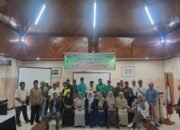Tulsi Gabbard, a former congresswoman from Hawaii, is a political figure known for her independent approach and strong anti-interventionist views. Born in American Samoa and raised in Hawaii, Gabbard served in the Hawaii Army National Guard and completed two tours in the Middle East, including a deployment in Iraq. This military experience played a significant role in shaping her views, especially her skepticism toward U.S. military interventions abroad.
### Early Career and Congressional Tenure
Gabbard first entered public service in 2002 when she was elected to the Hawaii House of Representatives at just 21. She later served on the Honolulu City Council before being elected to the U.S. House of Representatives in 2012. As the first Samoan-American and one of the first Hindu members of Congress, Gabbard represented Hawaii’s 2nd Congressional District for four terms. Her work in Congress often reflected her military background, emphasizing veterans’ rights and advocating for a more cautious approach to foreign policy.
### Presidential Run and Controversies
Gabbard gained national attention during her 2020 Democratic presidential bid, where she presented herself as an outsider willing to challenge party orthodoxy. She advocated for a non-interventionist foreign policy, calling for an end to “regime-change wars” and a reduction in U.S. military presence overseas. However, her campaign was marked by tension within the Democratic Party, particularly after she criticized figures such as Kamala Harris on criminal justice and clashed with Hillary Clinton, who implied that Gabbard was a “favorite of the Russians.” Gabbard’s response to Clinton was sharp, marking a significant rift with establishment Democrats.
### Departure from the Democratic Party
In October 2022, Gabbard announced her departure from the Democratic Party, citing concerns over what she described as its increasing “wokeness” and “hostility to people of faith and spirituality.” She criticized the party for its stance on censorship, military interventions, and what she viewed as divisive identity politics. This move aligned her with a more independent, cross-partisan stance that has resonated with Americans disenchanted with both major parties.
### Current Role and Influence
Although Gabbard no longer holds public office, she remains active as a political commentator and advocate for anti-interventionism and civil liberties. She has a significant presence in media, where she often discusses issues of government accountability, free speech, and foreign policy from a centrist or libertarian perspective. Her bold stance and maverick persona have kept her in the public eye and garnered a following among those who seek political leaders willing to challenge the bipartisan status quo.
Gabbard’s journey from a Democratic congresswoman to an independent voice reflects broader trends in U.S. politics, as more Americans question traditional party affiliations. Her career highlights the impact of military experience on political perspectives and the potential for cross-partisan appeal in a divided political landscape.




